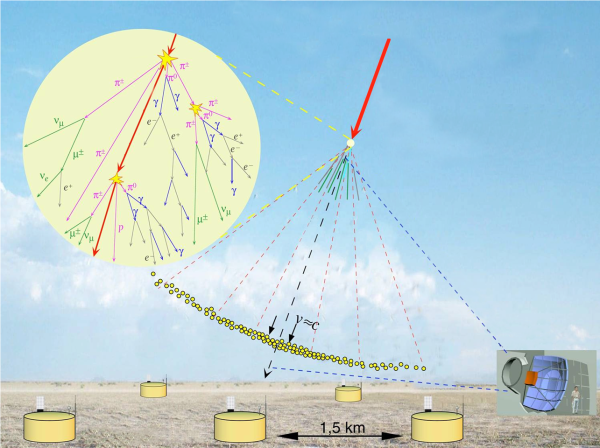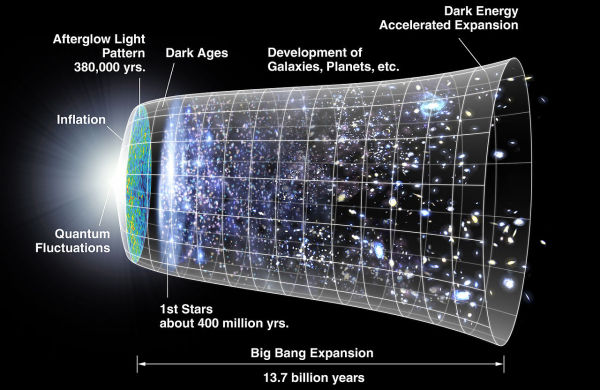When you think about cosmology and the fundamental questions scientists are trying to address, you inevitably wind up thinking about dark matter, dark energy and black holes as the three biggest topics that shape our view of the Universe.
But there are plenty of other aspects to this branch of science that deserve at least equal attention, including two important aspects that are rarely talked about with the same fervor or frequency: the highest energy particles in the Universe and the Universe's "dark ages," a period after the formation of neutral atoms but before any stars had formed!
 Image credit: Pierre Auger Observatory, via http://apcauger.in2p3.fr/Public/Presentation/.
Image credit: Pierre Auger Observatory, via http://apcauger.in2p3.fr/Public/Presentation/.
- Log in to post comments
More like this
"Most of these experiments required the reduction of the cosmic ray muon flux in order to be successful, and the group necessarily became expert in the operation of deep underground laboratories." -Frederick Reines
High-energy particles from space, generated from stars, white dwarfs, neutron stars…
"All our sweetest hours fly the fastest." -Virgil
If you've been around the block once or twice, you know that the speed of light in a vacuum -- 299,792,458 meters-per-second -- is the absolute maximum speed that any form of energy in the Universe can travel at. In shorthand, this speed is known as…
“One feels that the past stays the way you left it, whereas the present is in constant movement; it’s unstable all around you.” -Tom Stoppard
You might best know Einstein for E=mc^2, but I would argue that the far greater contribution was the development of relativity. Think about the following: if…
"The older people that one admires seem to be fearless. They go right out into the world. It's astounding. Maybe they can't see or they can't hear, but they walk out into the street and take life as it comes. They're models of courage, in a strange way." -James Hillman
The scientific enterprise has…






Please - not every reading this is American so please provide metric equivalents for distance, area, etc. Measurements. I am getting sick of having to do conversions every time I come across so - called customary measurements.
Wow! Why do you call God "Dark Matter"? It can'r be seen, it's all powerful...
how are star present in galaxies
@Monty #2: The difference we have observable, reproducible evidence for one, but not for the thousands of others.
When a computational cosmologist tells me that a wavelength of one meter equals a frequency of one gigahertz, and that that's the frequency of FM radio stations, I start to worry. When they tell me they're going to build a detector on "the dark side of the moon" I really worry. Didn't anyone proofread this?
Should we worry that your post there seems to have been a complete and utter brain-melting non-sequitur?
Or should we *really* worry?
Hmmm, 1 Ghz = 30 cm, 1/2 wave = 15 cm = ~ 6" but no FM stations in this country - FM is 88 to 108 Mhz .......